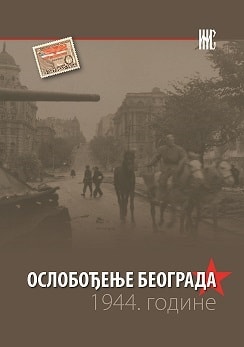20. октобар: Од ослобођења до окупације Београда (радикална трансформација једног политичког симбола)
October 20: From Liberation to Occupation of Belgrade (Radical Transformation of a Political Symbol)
Author(s): Miroslav Jovanović
Subject(s): Diplomatic history, Military history, Political history, International relations/trade, WW II and following years (1940 - 1949)
Published by: Institut za noviju istoriju Srbije
Keywords: Second World War; Belgrade operation; Red Army; Soviet-Yugoslav relations; historiography;
Summary/Abstract: When October 20, 1944 is in question, it is necessary to keep in mind the »overlapping« of two histories – the history of the event and the history of the interpretation of the event. The Belgrade operation was an important, but not the decisive operation in the South-Western advance of the Red Army on the vast front stratching from the Baltic to the Black Sea. On the other hand, the events in October 1944 introduced a fundamental change in the processes in Yugoslavia itself. It follows from the comparision of the forces of the German army group »Serbia« and those of the partizans that the liberation of Belgrade couldn't have been possible without the units of the Red Army. Over the past 65 years three historiographical discourses clearly featured in the interpretation of the events from October 1944: „common past”, „our past” and „occupation“. The history of WWII in Yugoslavia is interwowen and intersected by different contexts and levels of understanding and interpretation. The general context of the war is the world clash between the Anti-Hitlerite coalition and the Tripartite Pact. The occupation of Europe by the Third Reich and operating of occupation systems in these countries is on the second level. Mutual relations of allies within the Anti-Hitlerite coalition is on the third level. The context of the civil war in Yugoslavia comes only on the fourth level, having several different dimensions. Each of them represented a different historical context: religious war in the territory of the Independent State of Croatia, struggle between the two resistence movements, war between the Quisling forces and the resistence movements... The visit of the Russian preisdent on the 65th anniversary of liberation of Belgrade (proposed by the president of Serbia) re-historicized the whole event and relativized the paradigm of October 20, as the „day of the new occupation“.
Book: Ослобођење Београда 1944.
- Page Range: 505-523
- Page Count: 19
- Publication Year: 2010
- Language: Serbian
- Content File-PDF

